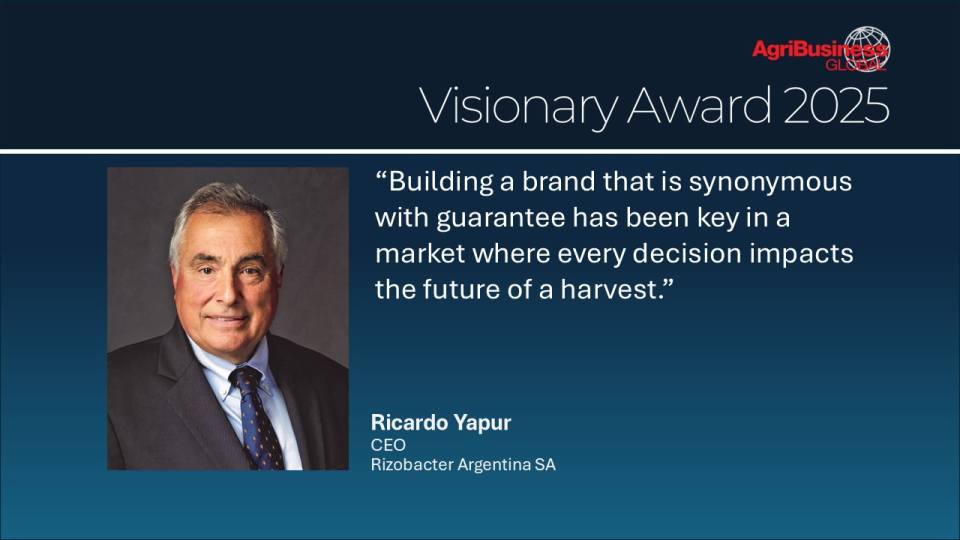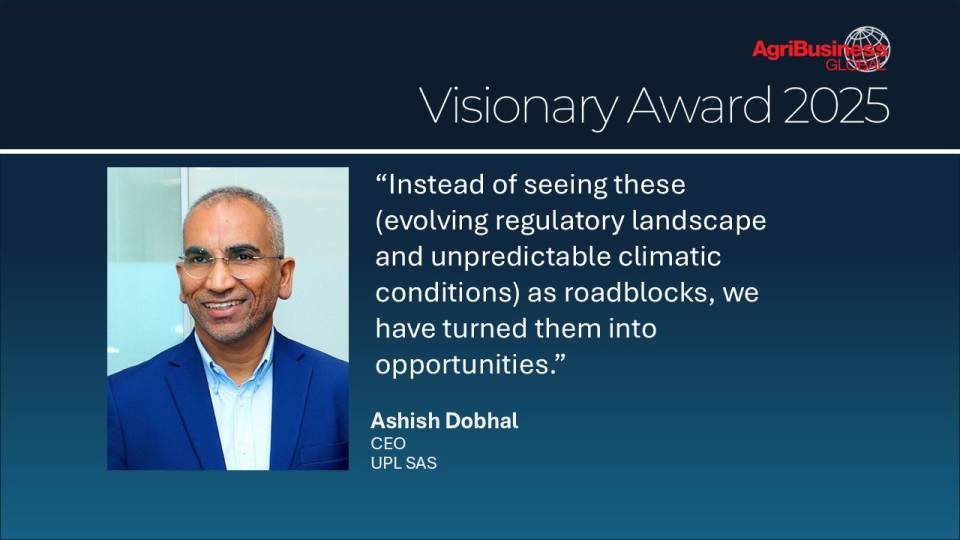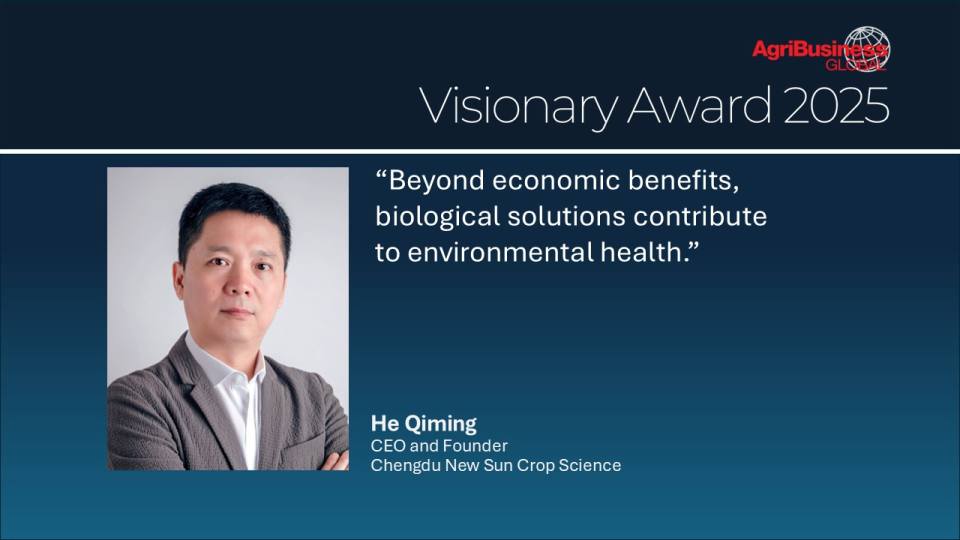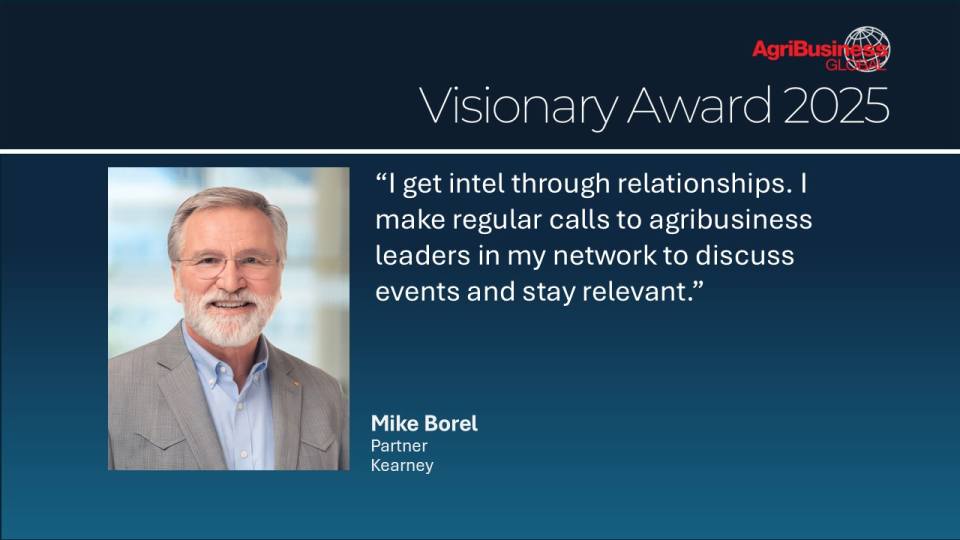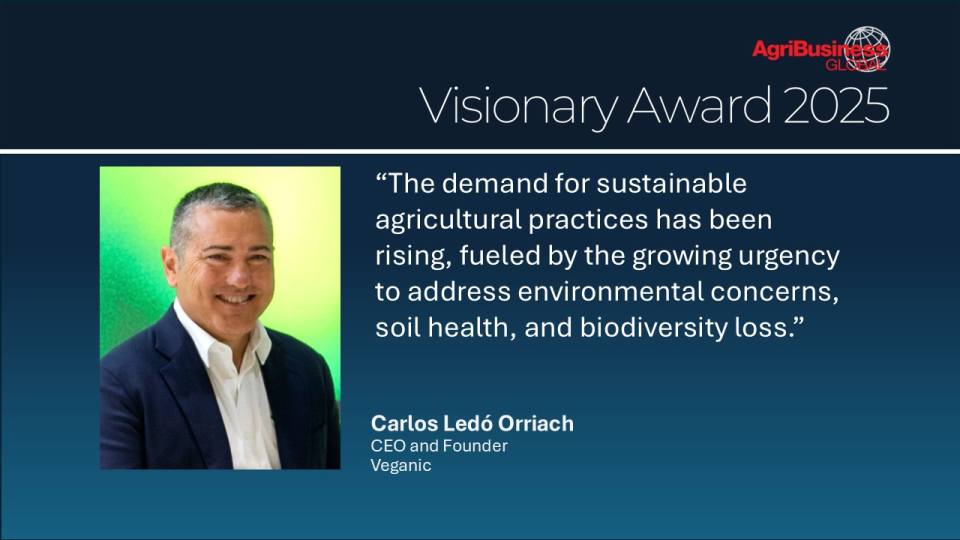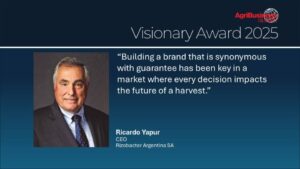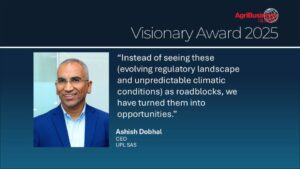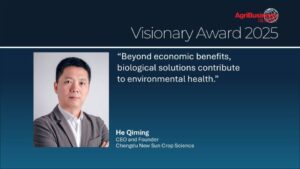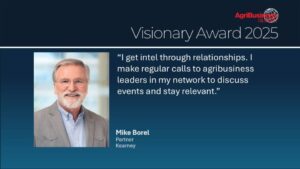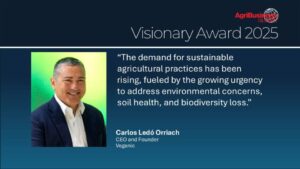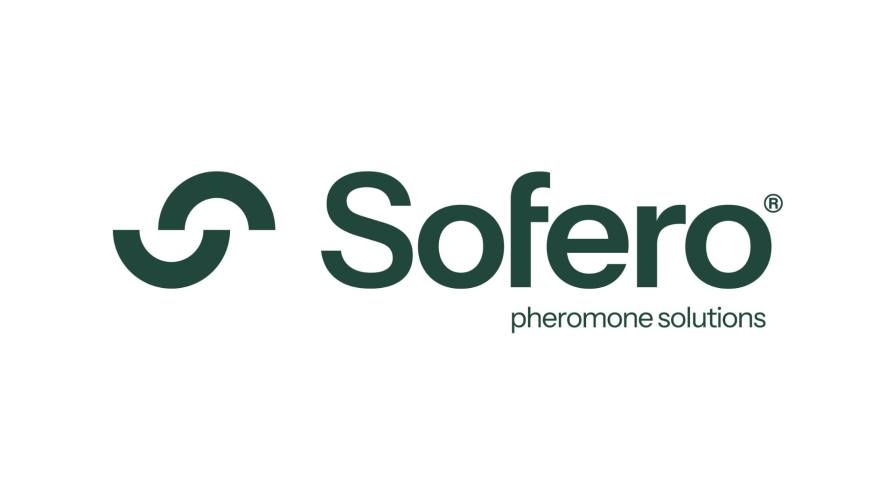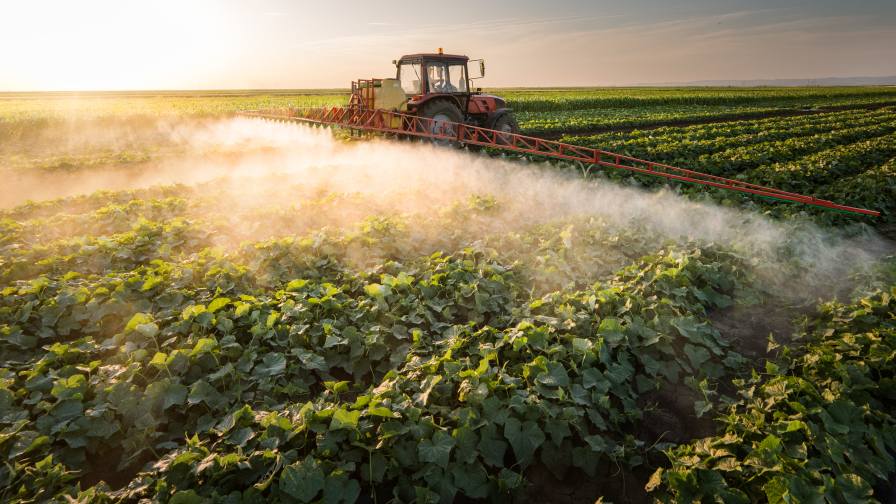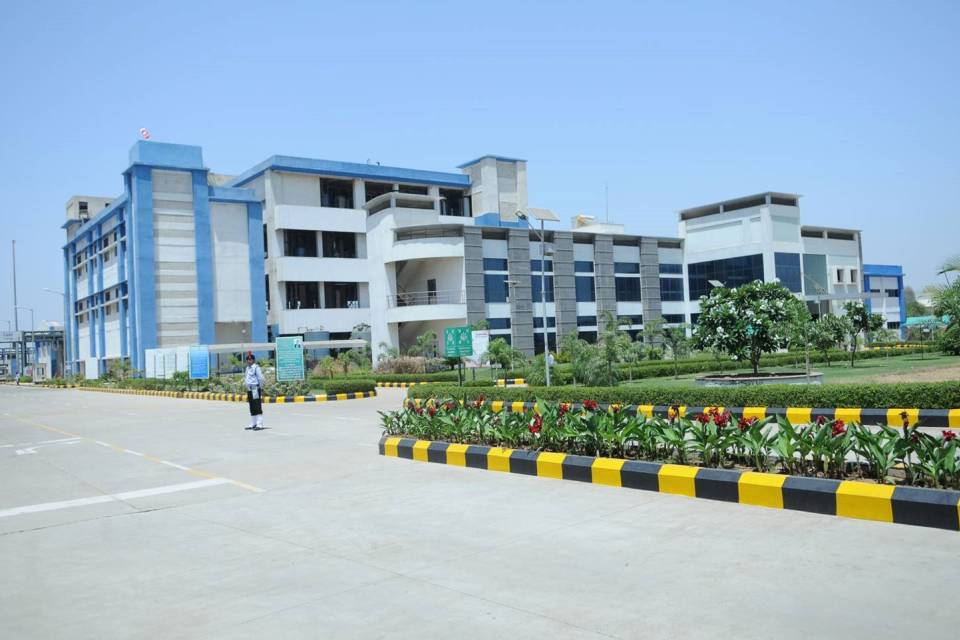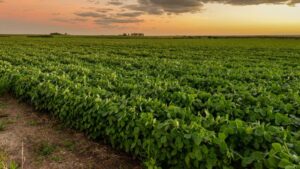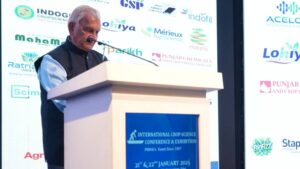Meet the AgriBusiness Global Visionary Leaders for 2025 (Part 1)
AgriBusiness Global asked our readers to nominate industry leaders who exemplified foresight, flexibility, and innovation with the ability to see changes in the market and lead others to success through strategic thinking. ABG received approximately 200 nominations. While we received nominations for excellent leaders, we selected 20 to honor with the 2025 AgriBusiness Global Visionary Leader Award.
This week and the following weeks through April, we’ll be highlighting five of the 20 each week, to share their accomplishments and get their perspectives on how they achieved their vision. In AgriBusiness Global’s Mid-Year Report coming out in June, we’ll be getting their insights on how to navigate the current market.
Until then, ABG would like to honor the following leaders in the crop protection, plant health, biological and ag tech industries.
Ricardo Yapur
Ricardo is the Alma mater of Rizobacter Argentina. Under his leadership they have built an Argentinean MNC exporting agricultural technology to the five continents.
ABG: What are three practices you’ve consistently implemented to navigate the ups and downs of the crop protection industry that have kept your company thriving and growing?
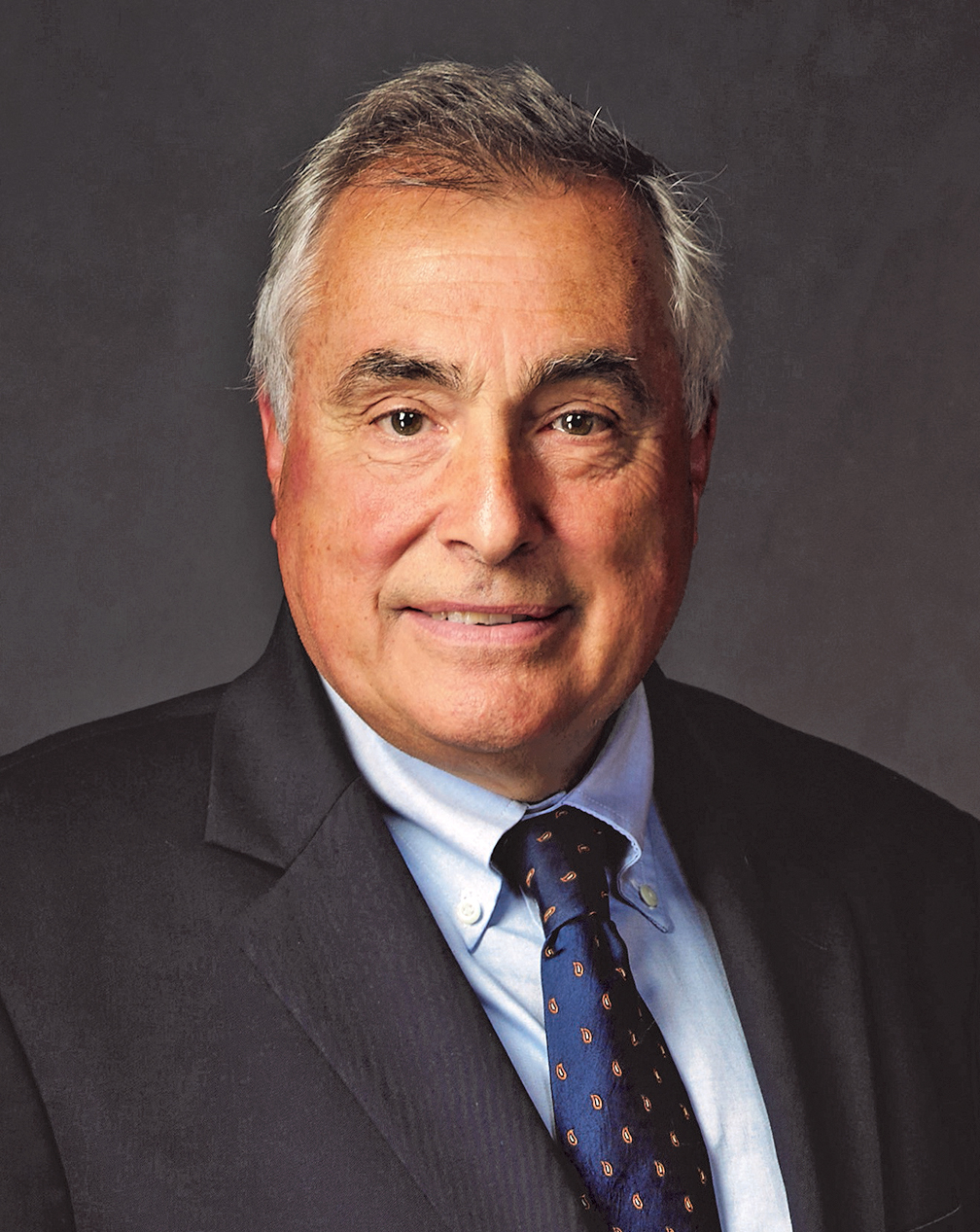
Ricardo Yapur
Ricardo Yapur: I have implemented three key strategies that have allowed our company to thrive in such a dynamic crop protection industry.
The first is empathy with the customer and a focus on quality. From my dual role as a businessman and agricultural producer, I’ve understood that success lies in understanding the real needs of our customers: distributors and producers.
Marketing is my strength, but empathy with those who work the land has allowed me to develop strategies that truly meet their expectations. Based on this premise, we have focused on developing and marketing high-quality products that promote profitable and sustainable production systems. Building a brand that is synonymous with guarantee has been key in a market where every decision impacts the future of a harvest.
The second is diversification, expansion, and strategic alliances. In response to the evolving nature of the sector, we have focused on a comprehensive value proposition that combines leadership in biologicals with the complementarity of synthetic chemical molecules. This strategy has allowed us to reduce our ecotoxicological burden without compromising producer profitability.
Furthermore, our expansion into international markets in Latin America, Europe, and Asia has provided us with financial stability and a diversified customer base. In addition, we have strengthened our network through agreements with research centers and multinationals, which has allowed us to access new technologies and maintain our competitiveness.
The third is constant innovation and sector transformation. For us, innovation and perseverance are not optional. They are the cornerstone of our growth. We have been developing disruptive solutions for more than 40 years, assuming that for every five products that reach the market, many more fall by the wayside. But we understand that without risk there is no progress, and without progress there is no transformation.
Today, the challenge in crop protection lies not only in the incorporation of new technologies, but also in the need to generate a profound change in the habits of the entire value chain. More information and training are essential for producers and distributors to adopt practices that improve efficiency and reduce environmental impact. Regenerative agriculture requires more integrated strategies, where knowledge and informed decision-making are as important as the inputs used.
Ultimately, our success is based on understanding our customers, offering innovative, high-quality products, expanding with a global vision, and, above all, maintaining innovation as a driving force of transformation in the industry.
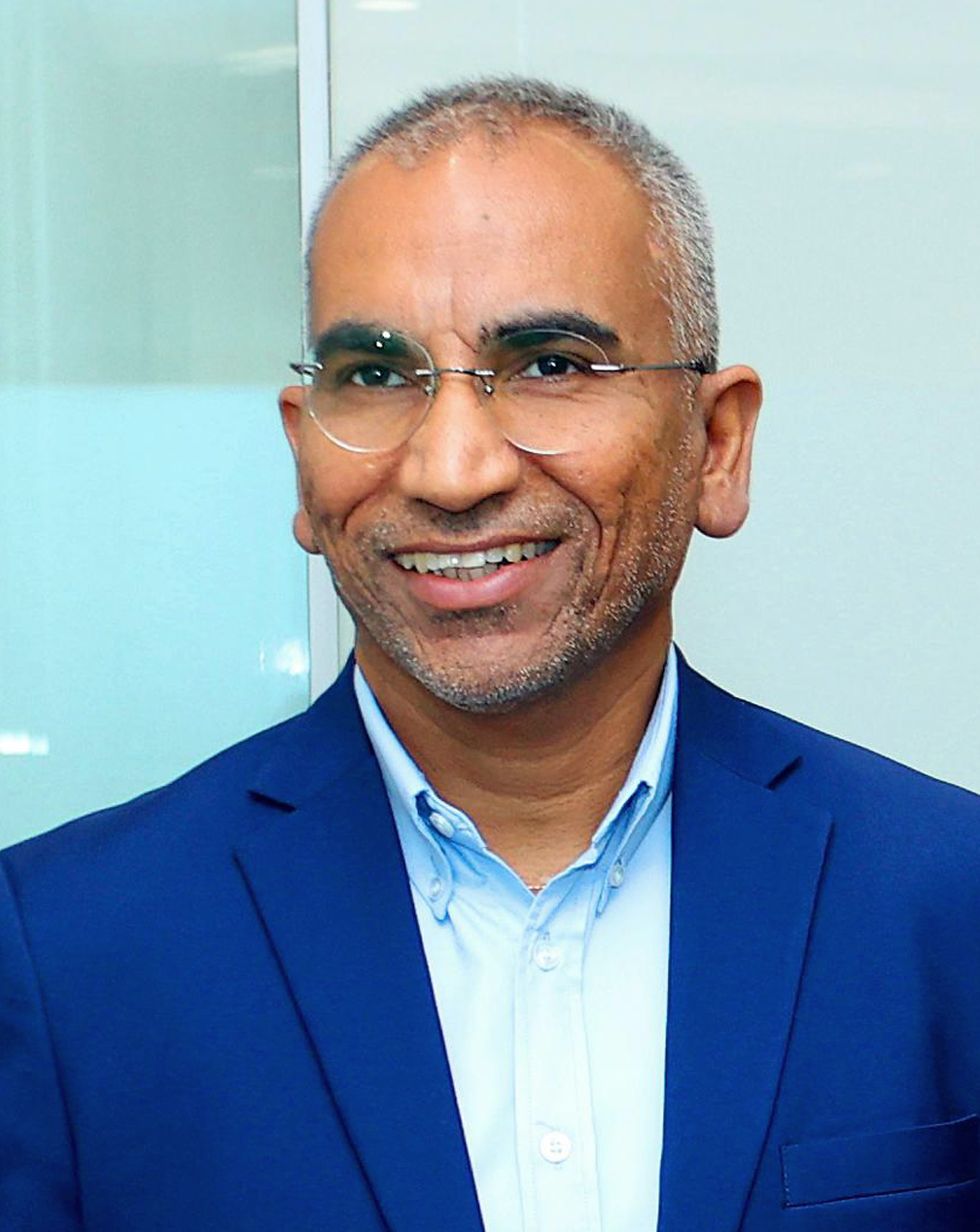
Ashish Dobhal
Ashish Dobhal
CEO
UPL SAS
As a leader with more than 17 years at UPL, Dobhal has more than doubled UPL’s business in India since his leadership began, while expanding business into Japan, China, Taiwan, the Middle East, Sri Lanka, and Bangladesh. A pro at navigating complex regulatory and business environments, ABG considers Dobhal a visionary leader for turning challenges into opportunities for growth and integrating technology into agribusiness. We asked him to share some of his strategy and insights.
ABG: How are you using technology to advance your company? How have you turned challenges into opportunities over the last decade?
Ashish Dobhal: Technology has been at the heart of our growth and transformation and helping us drive innovation in sustainable agriculture. Over the past decade, we have leveraged data analytics, and digital platforms to enhance farm productivity, optimize supply chains, and deliver real-time agronomic insights to farmers.
Our investments in precision agriculture (spraying machines/drones/harvesters), satellite-based crop monitoring, digital pest disease recognition, and IoT-powered smart farming through our farmer digital platform Nurture.farm have enabled us to offer data-driven solutions that maximize yields while minimizing environmental impact.
We are able to digitally connect to our most loyal trade/channel partners and give them real-time solutions. Besides this, we are also able to empower thousands of young entrepreneurs to run agriculture input business through our Nurture.retail initiative.
To drive change and transformation, one of our biggest challenges has been to reach out to millions of farmers and agro-input providers due to fragmented and small landholding while also navigating the evolving regulatory landscape and unpredictable climatic conditions.
Instead of seeing these as roadblocks, we have turned them into opportunities by developing crop packages suited to local needs, digital offerings to reach out to farmers and rural entrepreneurs, and introduce a series of climate-smart products, bio-based solutions, and digital advisory services for farmers.
Our commitment to OpenAg — a borderless network of sustainable agriculture — has allowed us to collaborate with global innovators, accelerating the adoption of cutting-edge technologies.
By continuously integrating R&D, sustainability, and digital transformation, we have not only strengthened UPL’s market leadership but also empowered farmers worldwide to be more resilient and profitable.

He Quimig
He Qiming
CEO and Founder
Chengdu New Sun Crop Science
Over his 30-year career, Qiming anticipated industry shifts and aligned innovation with global agricultural needs. His focus on systemic green solutions — plant health, soil restoration, and carbon reduction — drove his company’s mission to replace chemical inputs with bio-alternatives. Today, New Sun’s diversified portfolio, and partnerships with Syngenta and Bayer, are offering solutions to growers worldwide who want sustainable solutions while maintaining productivity. ABG asked Qiming how he foresaw the changes in the industry and how he urged others to join him.
ABG: You had a vision for sustainability before most of the crop protection market acknowledged it. How did you get this vision and how did you convince others to support your vision for sustainability?
He Qiming: Sustainability has been at the core of my vision since the very beginning of my career. Growing up in an agricultural county in China, I developed a deep understanding of the connection between farming and human well-being, along with a profound respect for the land. I wanted my family to enjoy fresh, healthy fruit and believed that all consumers should have access to safe, high-quality agricultural products. This conviction led me to establish New Sun, a company dedicated solely to biological solutions for more than 25 years.
Our mission is clear — leveraging biological innovations to achieve zero-residue, high-quality agricultural production. This not only ensures food safety but also enhances farmers’ profitability, creating a sustainable, virtuous cycle. Beyond economic benefits, biological solutions contribute to environmental health — they reduce carbon emissions during production and enhance carbon sequestration when applied in the field.
However, driving this transformation has not been easy. The first challenge was convincing the industry and market to accept biological solutions. Many viewed them as slow-acting, costly, and merely a supplement to chemical crop protection. I knew that changing this perception would take time. That is why I focused on technological innovation to improve product efficacy. We also established trial bases, expanded large-scale demonstration farms with government collaboration, and conducted extensive technical training. By allowing growers to witness the benefits firsthand, we gradually built market confidence in biological products.
The second challenge was balancing market demand with the promotion of sustainable farming practices. Many companies tend to follow market trends, but I believe it’s more important to guide the market toward healthier solutions.
At New Sun, we don’t just develop products, we promote the concept of sustainable crop protection, helping farmers shift from short-term, profit-driven, decision-making to a long-term, sustainability-focused approach. Through real-world examples, we have demonstrated that sustainable farming not only ensures healthy crop growth but also increases the market competitiveness of agricultural products.
Today, as global agriculture undergoes a green transition, we are proud to be at the forefront, leading the industry toward a healthier, more sustainable future.
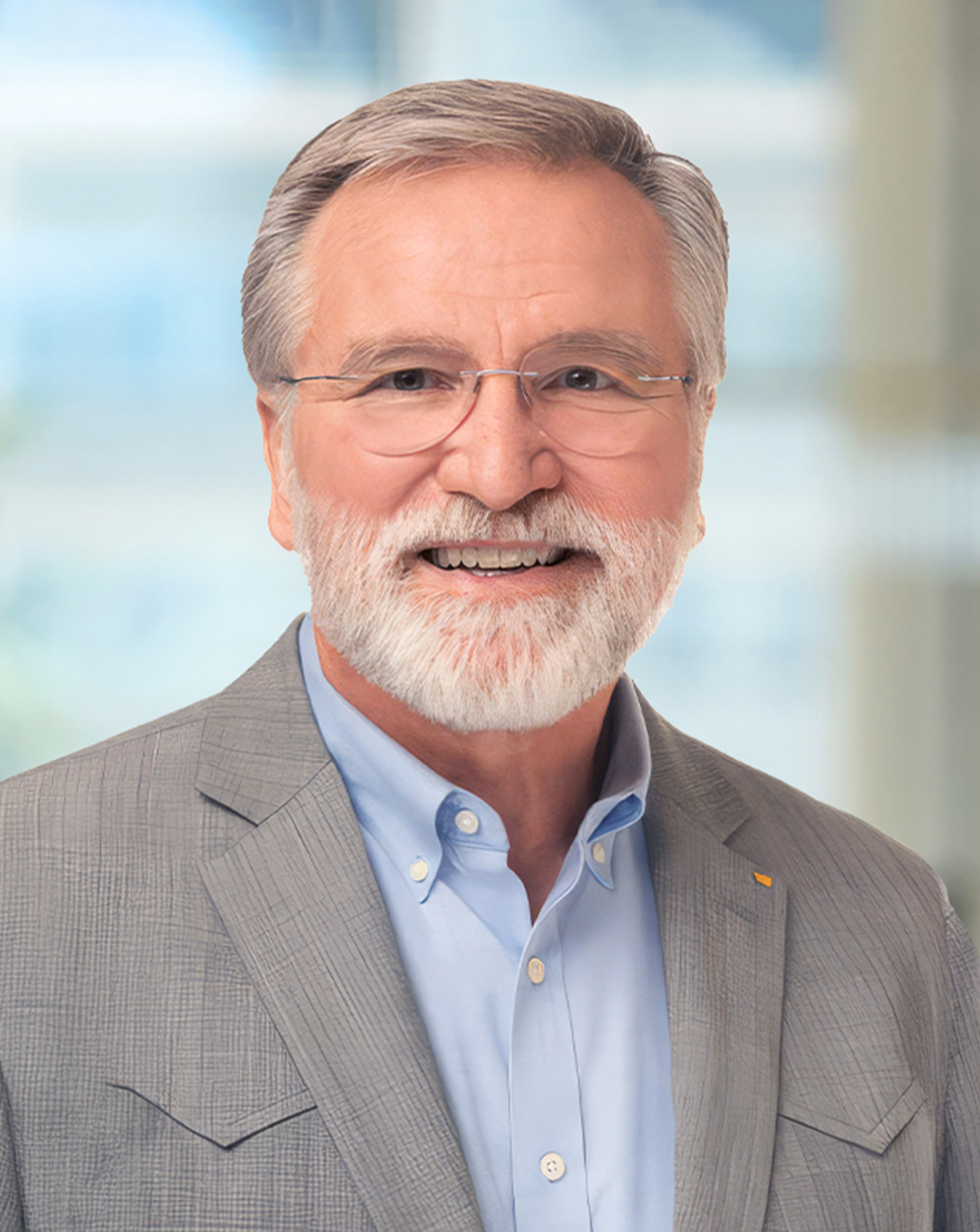
Mike Borel
Mike Borel
Partner
Kearney
Borel is another leader who anticipates market shifts and implements strategic solutions, as recently exemplified while leading The Context Network, an agriculture business consulting firm, through its acquisition by Kearney. Throughout his career, Borel has navigated uncertainties and adapted to rapidly changing market conditions, evident in his successful track record. ABG asked Borel what he does to support his ability to pivot challenges.
ABG: What kind of intel and counsel do you put in place for yourself to anticipate strategic moves for global crop protection market trends?
Mike Borel: There are four main areas where I get my intel.
The first would be news sources. I get subscriptions to various news feeds and publications particularly related to agriculture and crop inputs, including AgriBusiness Global. I monitor world news. The Kearney client research team also sends me daily updates.
The second way I get intel is based on relationships. I make regular calls to agribusiness leaders in my network to discuss events and stay relevant. I also have discussions with Kearney personnel and our Kearney Industry Experts to discuss trends and likely outcomes. And then there are regularly scheduled discussions with the Kearney Ag & Food Leadership Team to discuss trends, events, and issues.
The third is to select and attend conferences like the CropLife America Annual Meeting, World Agri-Tech, and other events.
Finally, I make regular visits to client headquarters to build relationships and get firsthand information.
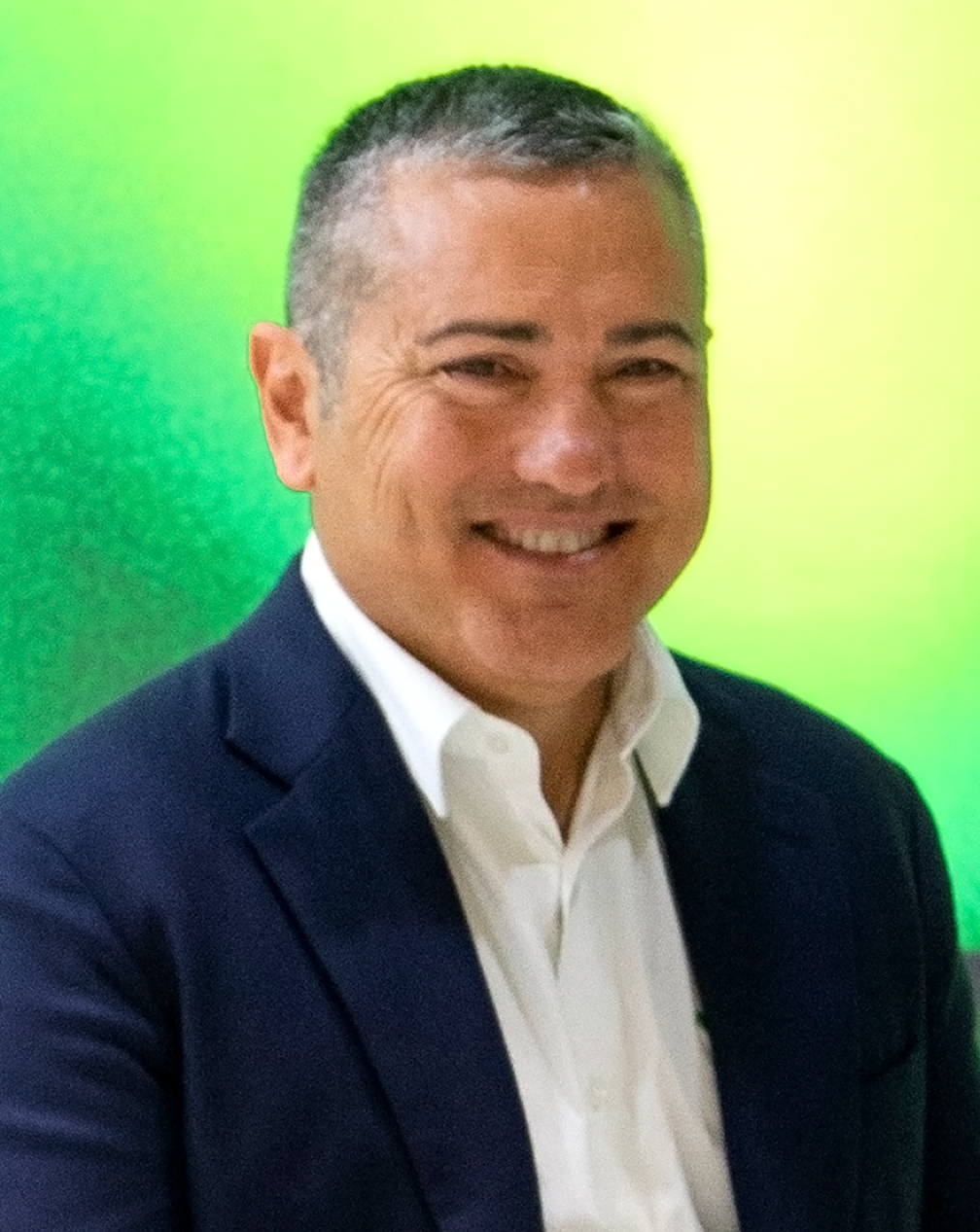
Carlos Ledó Orriach
Carlos Ledó Orriach
CEO and Founder
Veganic
As one of the first to see the value of biologicals, Orriach founded the company, Veganic, to create agro-solutions to positively impact the environment and promote responsible production of food. Orriach committed to his vision for sustainable growth and inspired others to join his work. He shares how his vision was created and what it took to make it a reality.
ABG: What future did you see for biologicals in your region, and why did you think it would work? How did you get others to see your vision?
Carlos Ledó Orriach: I foresaw a transformative future for biologicals in my region (Spain), driven by the growing necessity to align with the Green Deal and Farm to Fork strategies, which aim to drastically reduce the use of chemical inputs in agriculture by 2030.
The demand for sustainable agricultural practices has been rising, fueled by the growing urgency to address environmental concerns, soil health, and biodiversity loss. Biologicals are positioned to be a cornerstone of this transition, offering a viable solution that reduces the reliance on synthetic agrochemicals and fosters more sustainable farming.
The increasing focus on the Sustainable Development Goals (SDGs), particularly SDG 6 (Clean Water and Sanitation), which addresses water scarcity and the need to reduce the water footprint of agriculture, has helped frame biologicals as not just an alternative but a necessity for the future of farming. Biologicals can contribute significantly to water efficiency, reducing the overall demand for irrigation and minimizing water wastage by improving soil health and plant resilience.
To get others to see this vision, I leveraged data-driven evidence from field trials, scientific studies, and real-world success stories. By highlighting the direct benefits of biological products in reducing agrochemical use and aligning with the sustainability goals of the Green Deal, I helped create a shared understanding of the long-term benefits biologicals offer in transitioning to a more sustainable agricultural model.
Additionally, I emphasized the growing demand from supermarkets and consumers for food free from chemical residues, as well as the increasing relevance of the food-health link, which is driving the need for cleaner, healthier agricultural practices.

